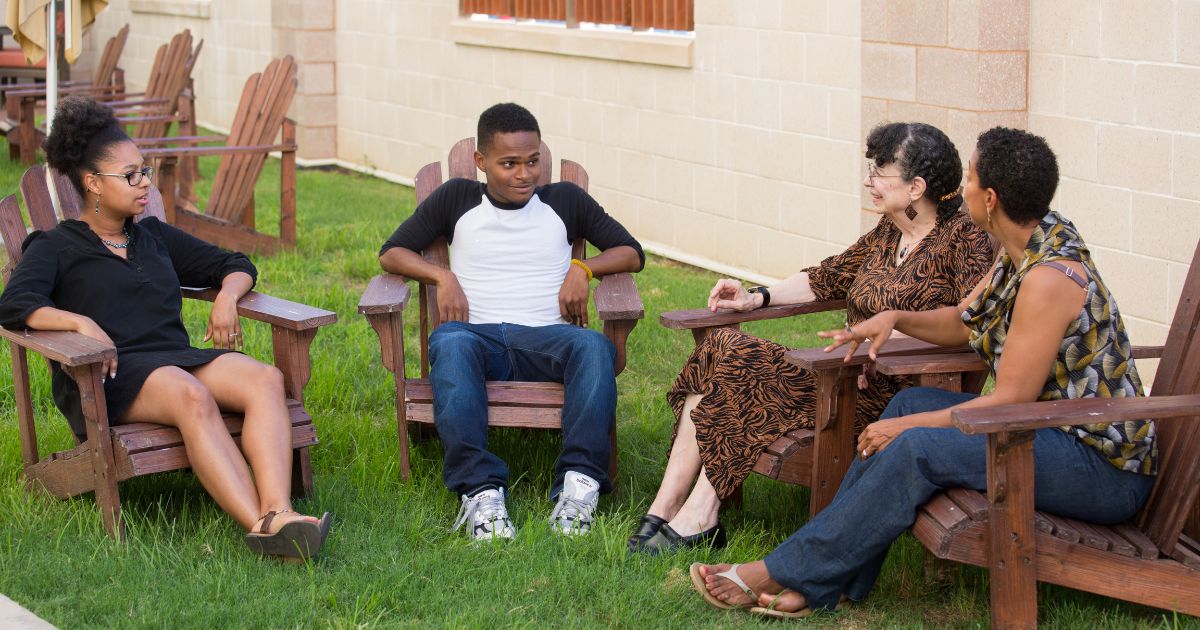Costa Mesa may be a beautiful Southern California city, but for those suffering from anxiety, each day can be a challenge. It’s estimated that nearly 20% of adults in Orange County, CA, suffered from mental, emotional, or addiction issues in 2019. One of the most prominent issues many struggle with today is anxiety.
People who experience anxiety know how difficult it can be. Simple things in everyday life become overwhelming challenges when anxiety takes hold. While some people have specific triggers that can cause symptoms to appear, others may experience panic attacks that can come on quickly and without warning.
In this article, we’ll explain what to do if you suffer from anxiety and the importance of anxiety treatment in Costa Mesa, CA.
What Is Anxiety?
Everyone feels anxious now and then because it’s a normal human emotion. Anxiety is a feeling of unease. It’s an uncomfortable, but sometimes necessary, emotion meant to tell you something is wrong. It’s your brain saying that there’s something you need to change or do differently right now. Often, it is a certain person, place, or thing that triggers anxiousness.
However, sometimes, the brain fails to regulate emotions like anxiety properly. This is when we cross into the realm of clinical anxiety.
What Are the Different Types of Anxiety Disorders?
Clinical anxiety refers to a range of mental health disorders that go beyond everyday stress and worry. It’s characterized by excessive and persistent fear, worry, and related behavioral disturbances severe enough to interfere with daily activities and functioning. Unlike the occasional anxiety experienced by most people, clinical anxiety is more persistent and excessive, often occurring most days for six months or more.
There are different types of clinical anxiety disorders, such as:
- Generalized Anxiety Disorder (GAD): Characterized by chronic and exaggerated worry and tension. There is often no specific cause or trigger.
- Panic Disorder: This is marked by recurrent panic attacks that feature sudden surges of intense fear or discomfort.
- Social Anxiety Disorder (SAD): Characterized by significant anxiety and discomfort in social situations. SAD is driven by a fear of being judged or embarrassed.
- Specific Phobias: Intense, irrational fears of specific objects or situations. Common phobias include heights, spiders, or flying.
- Agoraphobia: The fear of being in places where escape might be difficult leads to avoidance of these places.
- Separation Anxiety Disorder: Excessive fear of separation from home or attachment figures.
- Selective Mutism: A complex childhood anxiety disorder characterized by the inability to speak in certain social situations.
Clinical anxiety can significantly interfere with and diminish one’s quality of life. It’s often necessary for those who suffer from anxiety disorders to seek anxiety treatment in Costa Mesa, CA. If you struggle with substance abuse and anxiety, a dual diagnosis treatment center like South Coast Behavioral Health can help you overcome anxiety once and for all.
How Do You Know You Have Anxiety in Costa Mesa, CA?
If you think you’re suffering from anxiety, there are various symptoms to look out for.
Psychological symptoms of someone with anxiety include:
- Persistent worry or fear: Excessive worry about various topics, events, or activities, which is difficult to control.
- Feeling agitated: A sense of restlessness or being ‘on edge’ without an apparent reason.
- Irritability: Increased irritability or easier to upset than usual.
- Concentration difficulties: Trouble focusing on tasks or experiencing racing thoughts.
- Feeling of impending doom: An irrational fear that something terrible will happen.
- Avoidance behavior: Avoiding situations or places that trigger anxiety.
Clinical anxiety also has a variety of physical symptoms. These include:
- Increased heart rate: Heart palpitations or a feeling that your heart is racing. This can lead to panic attacks.
- Trembling or shaking: Noticeable shaking or trembling.
- Sweating: Sweating more than usual. This is not related to physical exertion or temperature.
- Fatigue: Feeling tired all the time or experiencing a significant lack of energy.
- Trouble sleeping: Difficulty falling asleep, staying asleep, or experiencing unrestful sleep.
- Gastrointestinal problems: Issues like nausea, diarrhea, or irritable bowel syndrome (IBS) can be linked to anxiety.
Everyone experiences anxiety differently. Having some of these symptoms does not necessarily mean you have an anxiety disorder. However, if these symptoms are persistent, significantly affect your daily life, and cause distress, it might be time to seek anxiety treatment in Costa Mesa, CA.
What Does an Anxiety Therapist in Costa Mesa, CA Do?
An anxiety therapist in Costa Mesa, CA, is a mental health professional. It’s often a mental health therapist in Orange County who specializes in diagnosing and treating anxiety disorders. This person may come from various backgrounds and hold different credentials, each bringing their unique approach to therapy.
Anxiety treatment in Costa Mesa is provided by professionals, such as therapists and doctors who specialize in mental health. Psychiatrists in Costa Mesa can diagnose anxiety disorders, provide therapy, and prescribe medications. They have completed medical school, a psychiatric residency, and sometimes fellowship training in specific areas of mental health.
Anxiety treatment in Costa Mesa is done through a mix of therapy and medication. One of the most effective treatments for anxiety is cognitive-behavior therapy (CBT). CBT focuses on identifying, challenging, and changing negative thought patterns and behaviors that contribute to anxiety. While treatment addresses the underlying root causes, antidepressants, anti-anxiety drugs, and beta-blockers can be prescribed to help manage symptoms.
Get confidential help from our addiction treatment specialists in Orange County. Call to join our rehab program today!
Call 866-881-1184What Is Anxiety Treatment in Costa Mesa, CA Like?
Anxiety treatment in Costa Mesa is diverse and can be tailored to your specific needs and symptoms. Treatment can occur in various settings, including private practices, clinics, hospitals, or community mental health centers. It can involve a combination of therapeutic approaches, medication management, lifestyle changes, and support systems.
Depending on your needs, you might receive anxiety therapy in a group or individual setting. Many find group settings helpful as it shows they aren’t alone in experiencing mental health struggles. The camaraderie and peer support that comes from group therapy can go a long way in helping someone overcome their issues with anxiety.
The types of therapies that may be used in treating your anxiety in Costa Mesa may include:
- Cognitive Behavioral Therapy (CBT): CBT is one of the most influential and commonly used therapies for treating anxiety. It focuses on identifying, understanding, and changing thinking and behavior patterns.
- Dialectical Behavior Therapy (DBT): Originally developed to treat borderline personality disorder, DBT is effective for treating anxiety, focusing on teaching skills in distress tolerance, emotional regulation, and interpersonal effectiveness.
- Exposure Therapy: Often used for phobias and social anxiety disorder, exposure therapy involves gradual, controlled exposure to the source of fear in a safe and supportive environment.
- Medication: While not a therapy per se, medication is a crucial aspect of treatment for some individuals. Psychiatrists in Costa Mesa can prescribe medications such as SSRIs, SNRIs, benzodiazepines, or beta-blockers to help manage symptoms of anxiety.
- Mindfulness-Based Stress Reduction (MBSR): This therapy emphasizes mindfulness meditation to help people better understand and manage their thoughts and emotions.
- Lifestyle and Holistic Approaches: Encouraging regular exercise, a healthy diet, adequate sleep, and yoga and meditation can also support anxiety treatment.
Treatment plans are often multidisciplinary and can include a combination of these therapies based on what works best for the individual. Many Orange County, CA, anxiety treatment centers are equipped to offer a range of these services, ensuring that individuals can find the treatment that best suits their needs.
Medications That Treat Anxiety
There are certain medications prescribed by medical professionals that can help reduce symptoms of anxiety. Unfortunately, a subset of anxiety medications known as benzodiazepines carry a risk of dependence and abuse when taken over more extended periods. Known as benzos for short, these anxiety medications are intended for short-term use only. They are often fast-acting and can provide relief when someone feels overly anxious.
Some of the most common benzodiazepines used for anxiety treatment include:
- Alprazolam (Xanax, Farmapram, Niravam)
- Chlordiazepoxide (Librium)
- Clorazepate (Tranxene)
- Diazepam (Valium)
- Lorazepam (Ativan)
- Clonazepam (Klonopin)
Benzodiazepines work by slowing down the central nervous system, causing the user to feel more relaxed. Drowsiness is a common side effect of benzodiazepine use. While the anxiety-reducing properties can be very helpful, there are negative side effects. Confusion, respiratory depression, extreme tiredness, and slower reflexes have all been reported among benzodiazepine users.
Is Anxiety Medication Dangerous?
In 2016, of the 30.6 million adults in the US using benzodiazepines, 5.3 million reported misusing the drug. While the most common form of benzo abuse was without a prescription, many Americans reported misusing their prescription as well.
Taking benzodiazepines for longer than the recommended 7 to 14 days can also lead to tolerance, which means the person will need to take more of the drug to feel the same effects.
In fact, studies show that up to 30 to 45% of patients who chronically use prescription benzodiazepines develop a low-dose dependency on the drug.
When an individual starts taking more than the prescribed dosage of anxiety medication, it opens the door for an overdose or even death to occur. Benzodiazepine addiction is when someone feels a compulsive urge to use the drug despite negative consequences. On top of this, research shows that benzodiazepine misuse is strongly linked to prescription stimulant and opioid abuse as well. This puts people at risk of developing a polysubstance use disorder, which greatly increases the risk of overdose and death.
The Link Between Anxiety and Addiction
Anxiety and substance abuse are often intertwined in a complex relationship, with each condition having the potential to exacerbate the other. Anxiety disorders, characterized by excessive fear, worry, and stress, can be overwhelming for individuals, leading them to seek relief or escape through substance use.
Research shows that there are three ways substance abuse and anxiety occur:
- Self-medication of an anxiety disorder leading to a substance use disorder (75%)
- A substance-induced anxiety disorder (0.2%)
- A third factor, such as genetic predisposition, leading to the simultaneous development of a substance use and anxiety disorder (24.8%)
Of the different types of anxiety disorders, people with generalized anxiety disorder (GAD) and panic disorder (PD) have the highest associations with substance use disorders. However, any who struggle with anxiety are at risk of developing a dependency. For this reason, it’s important to understand the relationship between anxiety and substance abuse, and how to address it.
The Dangers of Self-Medicating an Anxiety Disorder
The biggest risk of self-medicating an anxiety disorder is the potential of developing physical and psychological dependence on an addictive substance. Unfortunately, any form of substance abuse, regardless of a person’s intentions, can lead to an addiction.
This is because the body builds a tolerance to the substance the longer it is used. As a tolerance is formed, the body requires higher doses to achieve the same effect, which can escalate both the person’s substance abuse and feelings of anxiety.
While alcohol, prescription medications, and illicit drugs may temporarily reduce symptoms of anxiety may seem like an alluring respite from the mental turmoil but this relief is fleeting. More often than not, individuals increasingly rely on substances to manage their anxiety, causing a never-ending cycle of self-medication.
This can severely impact their physical and mental health, as well as their relationships and daily functioning. People who attempt to use drugs or alcohol to cope with anxiety often end up worsening their original symptoms and may even trigger new ones.
Looking for quality substance abuse treatment that’s also affordable? South Coast accepts most major insurance providers. Get a free insurance benefits check now.
Check Your CoverageDual Diagnosis Treatment for Anxiety and Substance Abuse
When someone struggles with anxiety and physical dependence on a drug like Xanax, they suffer from co-occurring disorders, also known as a dual diagnosis. This can also apply to individuals who drink alcohol or smoke marijuana to suppress symptoms of anxiety. When someone suffers from both addiction and mental illness, it’s important to receive treatment that addresses both disorders.
This is because treating only one of these disorders isn’t practical or effective. If someone receives treatment for their addiction but never addresses the feelings of anxiety that led to the substance abuse, their risk of relapse remains high. The same scenario can occur if someone receives care for their mental illness but not their patterns of substance abuse.
Rehab centers like South Coast Behavioral Health provide dual diagnosis treatment to address both disorders at the same time to help clients process their situation and build a strong foundation of skills to maintain their mental well-being and sobriety. Through psychotherapy, holistic treatments, and an individualized recovery plan, anyone can overcome their issues with anxiety and substance abuse.
Choosing the Right Anxiety Counseling in Costa Mesa, CA
Choosing the best anxiety therapist in Costa Mesa, CA, involves finding someone with a specialization in anxiety backed by ample experience. It’s crucial that their therapeutic approach, whether it’s cognitive behavioral therapy, exposure therapy, or another evidence-based method, aligns with your preferences and beliefs. You and your therapist may try many different forms of therapy to find the approach that best suits your needs.
Ensure the therapist is licensed and keeps up with current practices through ongoing education. The therapeutic relationship is vital, so feeling comfortable and understood by your therapist is essential. Consider practicalities like location, scheduling compatibility, and whether they accept your insurance or offer adjustable payment options.
Many therapists offer a free initial consultation, allowing you to gauge compatibility. Switching therapists is okay if you don’t feel the connection is correct, as finding the best match can significantly impact your therapy’s success. Feeling comfortable and safe when in therapy is key to success. That way, you can focus that positive energy on overcoming the challenges you face.
Find the Best Treatment for Your Anxiety
South Coast Behavioral Health offers a full continuum of care for anxiety treatment and any co-occurring substance use disorders. Our team of qualified, certified, and professional clinicians is with you every step of the way to ensure a safe and effective recovery from addiction and anxiety.
We offer unique levels of care from detox to intensive outpatient treatment so everyone can find the path to recovery that best suits their needs. Treatment at South Coast Behavioral Health isn’t a one-size-fits-all approach. We take the time to learn about each client to better understand their situation. That way, we can tailor a recovery plan that offers everything needed to overcome anxiety and addiction issues.
With so many safe and effective treatment programs, nobody should wait for help. The sooner you start treatment, the sooner you can move on to a happy and healthy life free from mental health disorders. Call South Coast Behavioral Health today at (866) 881-1184 and get started.
- Drug Fact Sheet: Benzodiazepines (dea.gov)
- Anxiety Disorders | SAMHSA
- Anxiety Disorders | National Institute of Mental Health (NIMH) (nih.gov)
- Benzodiazepine Use and Misuse Among Adults in the United States | PMC
- Benzodiazepine–practice and problems of its use | PMC
- Anxiety and Substance Use Disorders: A Review | PMC
- Prevalence, correlates, disability, and comorbidity of DSM-IV drug abuse and dependence in the United States: results from the national epidemiologic survey on alcohol and related conditions | PMC










